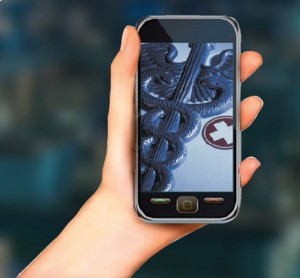Clinical | Smartphones Become Weapon Against HIV
Smartphones Become Weapon Against HIV
 An innovative plan developed by the Department of Medicine’s Ryan White Clinic, part of the Division of Infectious Diseases, uses smartphones to improve care for people recently diagnosed with HIV in rural Virginia. The electronic outreach effort won $525,000 in backing from the AIDS United Foundation in Spring 2013.
An innovative plan developed by the Department of Medicine’s Ryan White Clinic, part of the Division of Infectious Diseases, uses smartphones to improve care for people recently diagnosed with HIV in rural Virginia. The electronic outreach effort won $525,000 in backing from the AIDS United Foundation in Spring 2013.
The initiative aims to overcome problems such as depression, stigma and poverty that often delay and undermine care for rural residents with HIV. A yearlong review found that people newly diagnosed with HIV missed, on average, 1.7 scheduled appointments before arriving at the Ryan White Clinic, the largest provider of HIV care in central and western Virginia. Such delays can increase their viral level and cause their health to worsen, adding to the risk that they will spread the virus to others.

Rebecca Dillingham, MD
Infectious Diseases
“Our ‘Positive Links’ program provides a pathway to earlier entry into and engagement with HIV care,” says Division of Infectious Diseases faculty Rebecca Dillingham. “Strong links to HIV care are being built and reinforced with the assistance of our tailored smartphone application.”
The Positive Links program takes a three-pronged approach to ensure people get the care they need:
- A smartphone app provides personalized, interactive reminders and offers access to a virtual community. It is also designed to monitor treatment adherence and potential barriers to care, such as depressed mood, so that UVA staff can respond quickly.
- Counseling sessions, based on the Antiretroviral Treatment and Services program endorsed by the Centers for Disease Control and Prevention, provide information about HIV and skills and strategies for living with it. These lessons are reinforced by the app.
- A priority access pathway for those newly diagnosed with HIV to ensure they receive care within 24 hours of contacting the Positive Links coordinator.
“Our hope is that Positive Links will provide critical support to people recently diagnosed with HIV, so that they can make good choices about their health in this particularly vulnerable period,” Dillingham said.
The app is currently being fine-tuned and participants are being recruited for beta-testing of the app.
